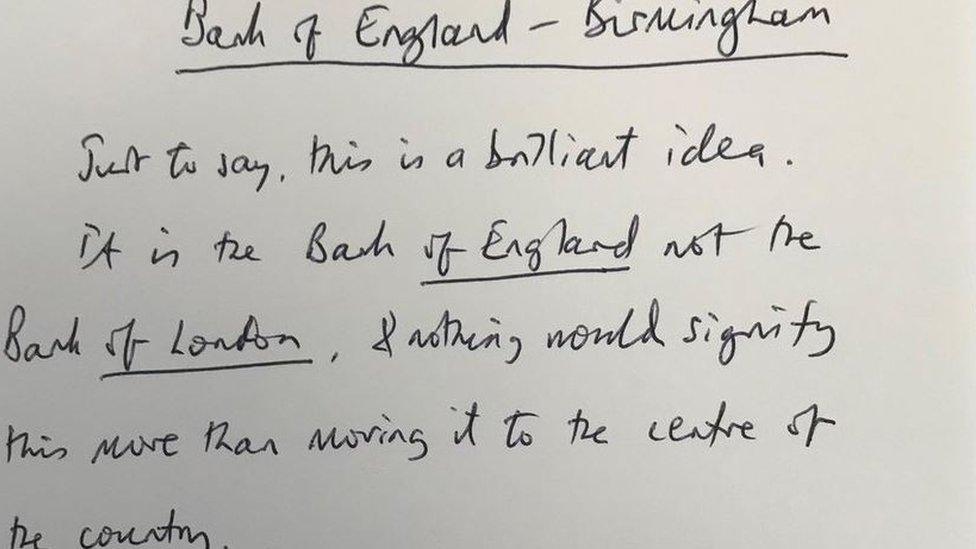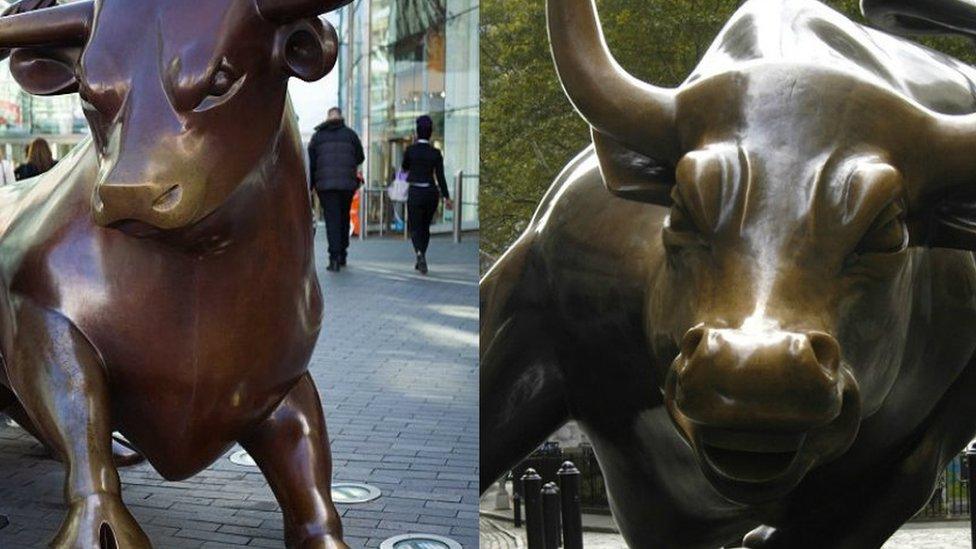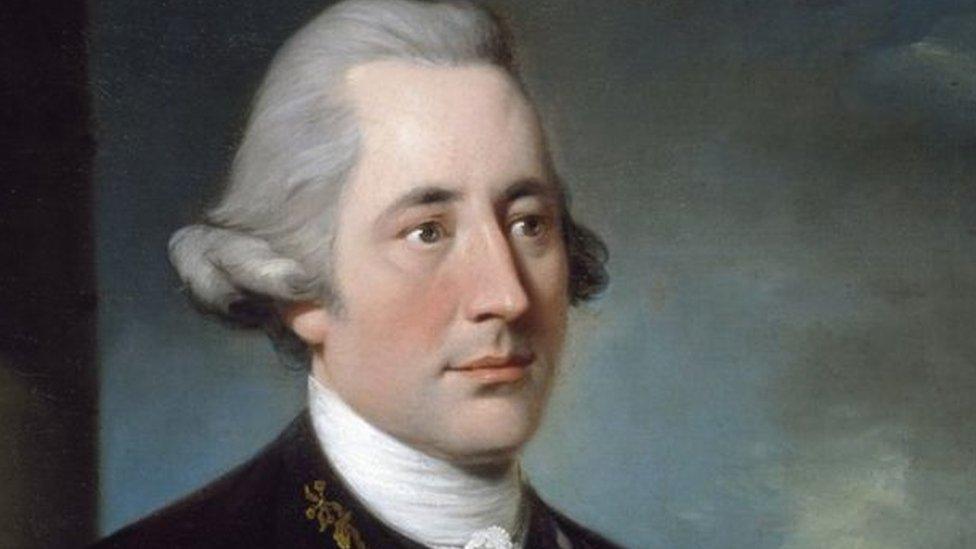Bank on Brum: Labour's idea set to rebalance economy?
- Published

Former Labour Education and Transport Secretary Lord (Andrew) Adonis likes the idea
New York, Frankfurt.....Birmingham?
What does our biggest city outside London have in common with those other great conurbations?
They are not national capitals. But New York and Frankfurt are their countries' main banking and financial centres and, if Labour get their way, Birmingham could soon be joining them.
Shadow Chancellor John McDonnell is backing plans for much of the Bank of England, including the governor's office, to be relocated from London to Birmingham. With it would come a new national investment bank and the secretariat and research departments of a strategic investment board, of which the chancellor, the business secretary and the governor would be leading members.

Birmingham's Bull could be taking on the might of the Charging Bull of Wall Street
A consultants' report commissioned by Mr McDonnell and compiled jointly by the GFC Economics and Clearpoint Corporate Management says this would "constitute an economic policy hub, possibly close to New Street Station".
GFC's chief economist Graham Turner says the current London-centred scheme means banks are "diverting resources away from industries vital to the future of this country...in which...the pace of automation and technological change is accelerating."
Mr McDonnell says the proposals "would provide clear, visible, evidence of the new government's determination to promote growth and rebalance the economy".
It'll never happen...
This, inevitably, is the stock response of many observers in a famously London-centred country.

Matthew Boulton developed the first regular coinage from his Soho Mint in Birmingham
The Brexit debate reminds us our national capital is one of the world's most important business centres so anything that diminishes its significance may be considered damaging to the national interest.
You can bet many bankers and treasury mandarins would resist any move just as fiercely as some Channel Four television executives currently oppose the idea of relocating them out of London. A hundred years ago, the treasury strenuously objected to the establishment of the Birmingham Municipal Bank.
That was one battle they lost.
So let's indulge ourselves, just for a moment or two, in what poet and philosopher Samuel Taylor Coleridge called "the willing suspension of disbelief".

HSBC in Birmingham will employ thousands when it opens in January
"Go for it!" says the chair of the national infrastructure commission, the former Labour Education and Transport Secretary Lord (Andrew) Adonis. "It's the Bank of England not the Bank of London".
He suggests it should be built next to the HS2 station due to open in Curzon Street in nine years' time.
Just in case this seems like some madcap flight of fantasy, it's worth reminding ourselves that Birmingham can already lay claim to a distinguished history in banking. Lloyds Bank was founded in the city in 1756.
Thirty-eight years later the world's first mint opened in the city.

Birmingham is the largest city economy outside of London.
From 1919, the Birmingham Municipal Bank went on to challenge the dominance in the city of Britain's "big five" banks for more than half a century.
And now HSBC and Deutsche Bank's trading division are promising huge investments in and around Birmingham's answer to Canary Wharf, currently under construction at Arena Central near Broad Street. 4,000 people will work in HSBC's new £200 million UK headquarters, due to open in the new year.
Their Chief Executive Antonio Simoes says Birmingham is "a growing city" with the "expertise and infrastructure" to support the bank.
Its business, professional and financial services sectors account for over 500 companies.

The new Bank of England could right by the proposed HS2 station at Curzon Street, it's suggested
Last year, the Greater Birmingham Chamber of Commerce identified it as the biggest city economy outside London. Half a million people are employed in a local economy worth over £23bn.
The Snow Hill Masterplan envisages over 200,000 sq m of new office space, 4,000 new residential units and, not least, 10,000 new jobs over the next 20 years.
The chair of the Greater Birmingham and Solihull Local Enterprise Partnership, Tim Pile, tells us:"With the region's unparalleled connectivity and access to markets set to be bolstered by HS2 and further infrastructure investments, its attractiveness to financial services firms shows no signs of slowing down.
"Welcoming organisations like the bank of England here would add to the already vibrant environment for businesses and the public sector."
So does this all still sound like just so much pie in the sky?
Maybe our disbelief should remain suspended for just a little longer.....
We'll have more on this in this weekend's Sunday Politics Midlands at 11.00 on Sunday morning, 17 December 2017.
- Published11 December 2017
